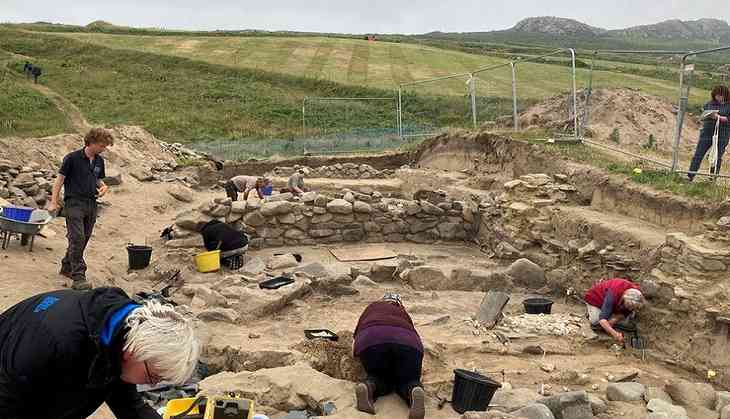
Archaeologists in United Kingdom’s Pembrokeshire found around 200 human skeletons dating back to the 6th century, at one of Britain’s best beaches.
According to BBC, archaeologists have discovered the remains of human bodies from Whitesands Beach, which was a medieval trading post with Ireland. Fortunately, the bodies are well preserved as they were buried in the sand. Now, the skeletons will be stored at the National Museum of Wales.
However, the skeletons were unearthed by the stormy weather and natural erosion.
Archaeologists found the graves just below the surface of sand dunes at Whitesands Bay, a Blue Flag beach near St David’s in Pembrokeshire, metro.co.uk report said.
Reportedly, skeletons belong to members of an early Christian community.
A team from Dyfed Archaeological Trust and the University of Sheffield are trying to excavate as much as they can because they are worried coastal erosion could wash it away.
According to metro.co.uk, Archaeologist Jenna Smith said: ‘It’s really important because the preservation of the bones, as they are in the sand, is absolutely incredible.”
NEWS: Archaeologists have preserved about 200 bodies from the site of a medieval trading post with Ireland. The remains from Whitesands Beach, #Pembrokeshire, will be stored at the @AmgueddfaCymru https://t.co/AswYur0k7o pic.twitter.com/eL4qOxpXNl
— 365Wales 🏴 (@365Wales) July 2, 2021
“We’ve lifted over 90 burials in the last three weeks. It’s really important that we do so because it gives that snapshot in time which we don’t normally get in Wales. The bone doesn’t normally exist,” Smith further added.
The incident came to light after the bones were spotted by eagle-eyed members of the public.
As per the University of Sheffield’s experts, the remains were from men, women, and children of all ages.
In keeping with early Christian burial traditions, all the bodies were aligned with the head pointing west and without possessions, they added.
Reportedly, the site has been a magnet for archaeologists since 1920.
Also Read: Man finds crocodile in his courtyard; know what happens next
The Dyfed Archaeological Trust said there is “still a significant amount of evidence left to excavate,” including an “intriguing stone structure which pre-dates the burials”.
It is hoped that the human remains will allow the experts to determine what the people ate and also when they were born.
Reportedly, the site will be refilled after excavation ends on July 16.
Also Read: Bizarre! Man files complaint against gang of ‘ghosts’
First published: 5 July 2021, 13:56 IST

